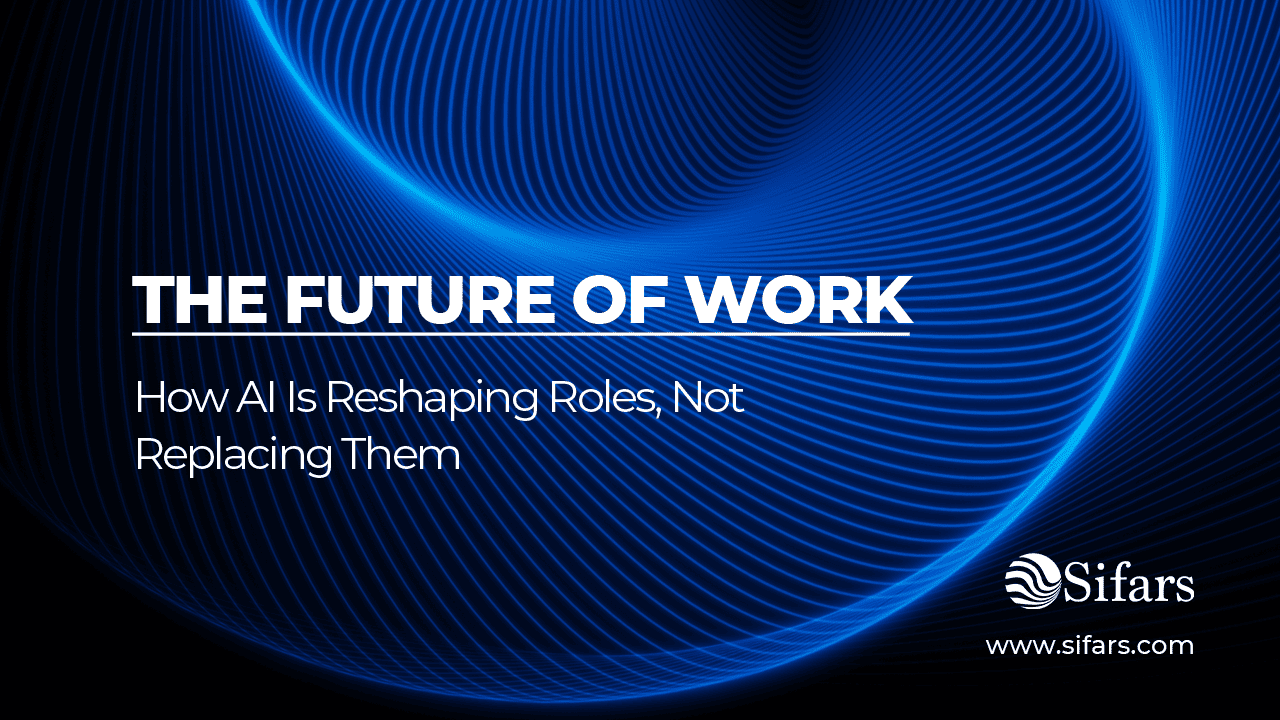The rise of Artificial Intelligence (AI) is often accompanied by concerns about job loss, automation, and redundancy. Headlines sensationalize fears that machines will replace humans in every sector, creating a narrative that fuels anxiety. However, the reality is far more nuanced. AI is not here to replace us; it is here to augment our abilities, transform how we work, and open new frontiers of productivity and creativity. The future of work is not about man versus machine—it’s about collaboration between the two.
The Automation Myth:
What AI Really Does AI is exceptional at handling repetitive, rule-based, and data heavy tasks. It thrives in environments where speed, accuracy, and consistency are paramount. For instance, AI can quickly process vast amounts of data for customer insights, automate quality checks in manufacturing, and even assist doctors in diagnosing diseases with greater precision. But AI lacks the emotional intelligence, creativity, strategic thinking, and ethical judgment that humans bring to the table. Rather than erasing jobs, AI is reshaping them. It removes the tedious and time consuming tasks, enabling professionals to focus on higher-value work that requires human insight and decision-making.
Real-World Examples of AI-Enhanced Roles
1. 👨🏽💻Customer Service:
AI-powered chatbots handle common customer queries, but human agents are still essential for resolving complex issues and offering empathetic support.
2. 👨🏽💻Healthcare Services:
AI assists radiologists by highlighting anomalies in scans, but the final diagnosis and patient communication rely on doctors.
3. 👨🏽💻Finance:
Algorithms flag suspicious transactions or predict market trends, but human analysts interpret these insights and make strategic decisions.
4. 👨🏽💻Marketing:
AI tools can optimize ad spend or segment customer data, while marketers focus on messaging, creativity, and brand positioning.
New Roles Emerging from AI Integration
With AI integration, we’re witnessing the birth of entirely new roles and career paths:
👨🏽💻AI Trainers:
Professionals who teach AI systems how to interpret human input correctly.
👨🏽💻Prompt Engineers:
Experts who craft precise prompts to get desired outputs from generative AI
models.
👨🏽💻Data Annotators:
Individuals responsible for tagging and labeling data that trains AI.
👨🏽💻Ethical AI Specialists :
Ensuring that AI is used responsibly and without bias.
👨🏽💻AI Product Managers :
Ensuring that AI is used responsibly and without bias.
These roles didn’t exist a decade ago, showcasing how AI is creating more opportunities than it is eliminating.
Upskilling and Reskilling: The Key to an AI-Ready Workforce
To thrive in this AI-powered future, businesses and individuals must embrace a culture of continuous learning. Upskilling and reskilling are no longer optional; they are essential.
Key areas to focus on include:
👨🏽💻Digital Literacy :
Understanding how AI works and where it fits in your industry.
👨🏽💻Data Analytics :
Learning to interpret data for better decision-making.
👨🏽💻Soft Skills :
Communication, empathy, and critical thinking remain irreplaceable.
👨🏽💻AI Tools Proficiency :
Becoming comfortable with AI platforms relevant to your role (e.g., ChatGPT, Tableau, TensorFlow).
Organizations investing in employee training not only future-proof their workforce but also attract top talent by offering growth opportunities.
The Human-AI Collaboration Model
The most successful businesses of the future will be those that master human-AI collaboration. Consider it a partnership: AI brings speed, scale, and data-driven insights, while humans bring context, creativity, and emotional understanding.
This collaborative model leads to better outcomes. For example:
👨🏽💻 In customer experience, combining AI chatbots with live agents improves resolution time and satisfaction.
👨🏽💻 In product design, AI analyzes trends while designers focus on user experience and aesthetics.
👨🏽💻 In hiring, AI screens resumes, but human recruiters assess cultural fit.
Challenges & Considerations
Despite the benefits, integrating AI into the workplace isn’t without challenges. Key concerns include:
– Bias in AI algorithms: If not properly managed, AI can perpetuate existing inequalities.
– Job displacement fears: Employees may resist AI adoption due to uncertainty.
– Data privacy: Increased data usage calls for stricter data protection policies.
These issues require transparent communication, ethical guidelines, and responsible AI development practices.
Conclusion : A Co-Evolution of Technology & Talent
AI is not a job killer; it’s a job shaper. It is catalyzing a transformation in how work is done, prompting businesses to rethink roles, processes, and required skills. The future of work is a co-evolution of technology and talent, where humans and machines complement each other to unlock new levels of efficiency and innovation.
Companies that embrace this shift, invest in upskilling, and foster a culture of adaptability will not just survive—they will lead. The question isn’t whether AI will change the future of work. It already is. The real question is: Are we ready to evolve with it?

Leave a Reply